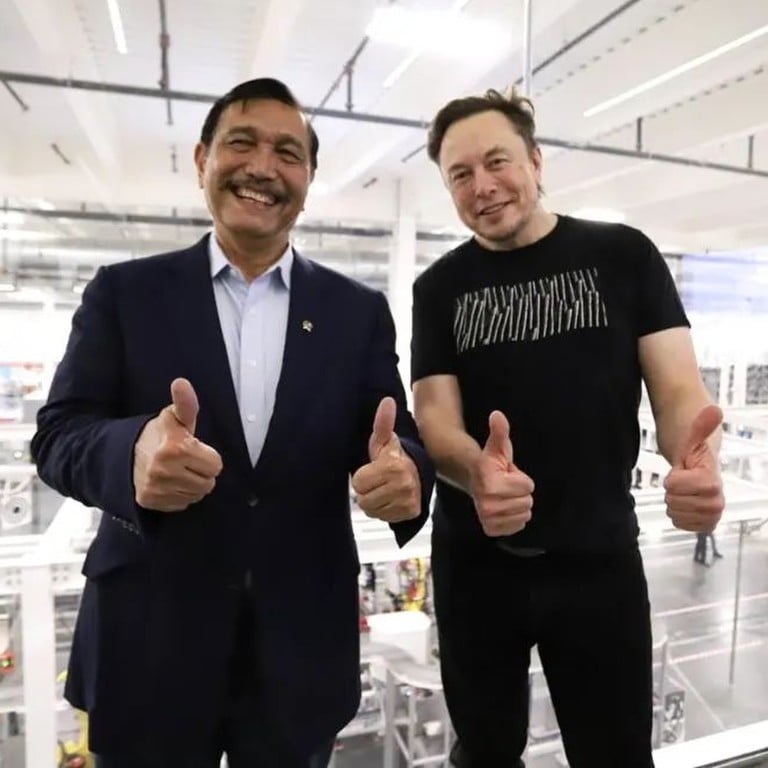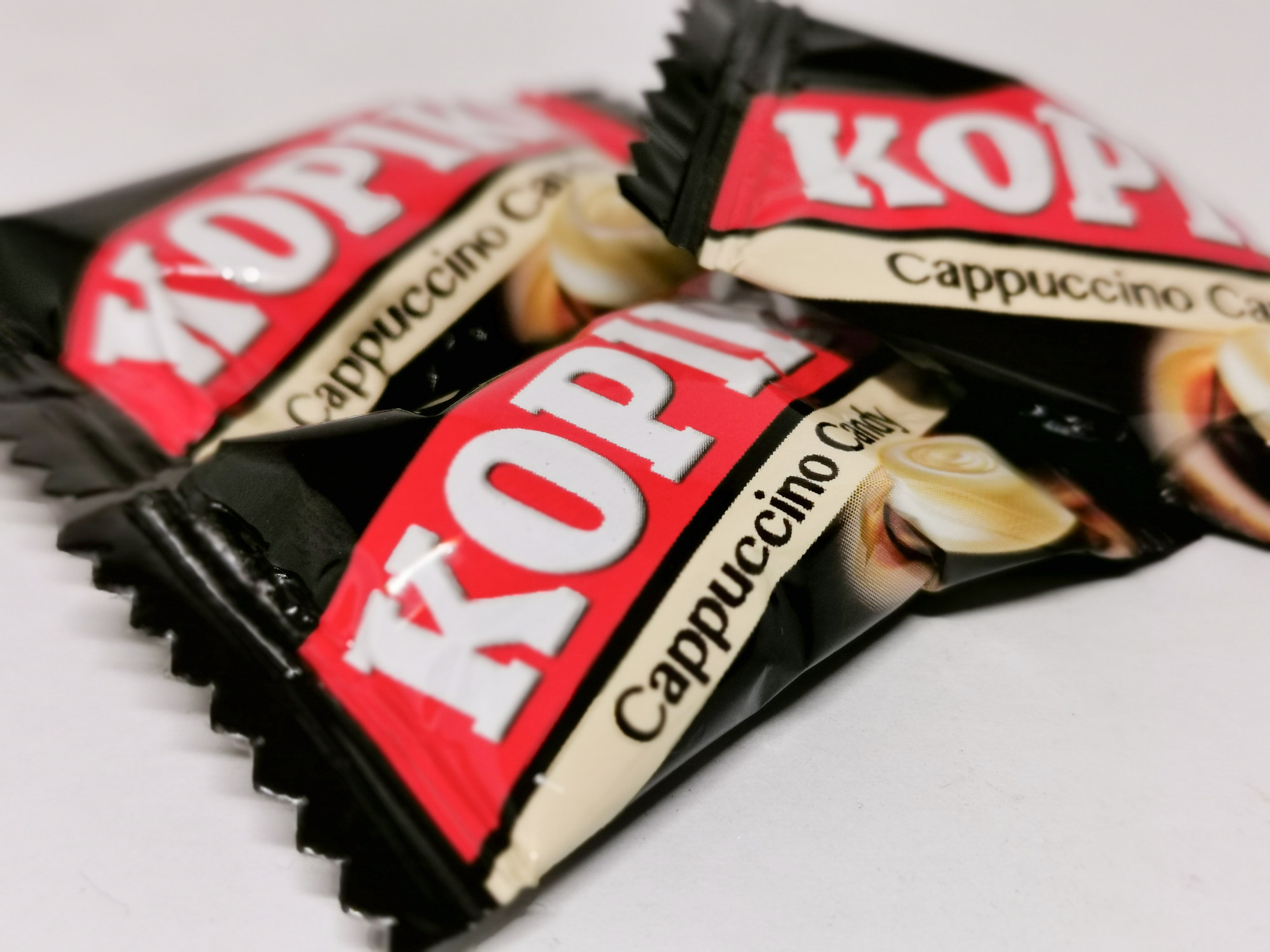
Elon Musk offers two thumbs up to Indonesia’s coffee candy Kopiko and its stock gets a heady buzz
- Musk’s affection for the confection has proven beneficial to the company as its stock rose 7.3 percentage points the day after he was introduced to Kopiko
- Indonesian politician offered Musk the candy during a meeting about the Southeast Asian nation’s efforts to develop the electric vehicles battery industry
When Indonesia’s coordinating minister of maritime and investment affairs Luhut Pandjaitan met the world’s wealthiest man Elon Musk in Texas last week, something sweet was offered on the table that eventually captured the whole nation’s attention.
“Pretty good,” Musk said, raising his two thumbs afterwards.
The two men then proceeded to talk about Indonesia’s efforts to develop the electric vehicles battery industry and investment opportunities in the sector. Southeast Asia’s biggest economy has the world’s largest nickel reserve, at 21 million tonnes, and it is also one of the top producers of the metal.

“I guess he’ll purchase the whole Mayora next month,” a Twitter user said, referring to the candy’s producer.
Other users quickly pointed out that Nasa astronauts also thought the snack was out of this world, taking the sweet into space in 2017.
This isn’t the first time the candy became a potent brew for national headlines.
Previously, Kopiko was seen in Korean dramas, such as Hometown Cha Cha Cha, Vincenzo, Mine, and Yumi’s Cells, as part of a savvy product placement strategy to ride on Korea’s status currently shaping the global cultural zeitgeist.
Musk’s affection for the confection proved beneficial to the company as its stock rose 7.3 percentage points the day after he was introduced to the sweet, before settling down at IDR 1750 (US$0.12) this week.
“We thank Mr. Luhut for bringing an Indonesian pride product on his state visit,” Andre Atmadja, president director at Mayora, said in a statement.
Kopiko’s heady starring role during the meeting between Musk and Luhut even sparked speculation by a lawmaker from the ruling PDI-P that Luhut had some sort of business ties with Mayora. Luhut’s spokesman Jodi Mahardi denied the accusation.
“Luhut has no link with Mayora Group,” Jodi told CNN Indonesia, adding the reason the minister brought the coffee-flavoured candies was to promote Indonesian products.
Indonesian palm oil export ban could ‘lead to unrest’ as inflation hits poorest
Despite the name, Mayora claimed that Kopiko sourced its beans from Indonesia, whose volcanic soil provides fertile ground for coffee production.
Mayora’s history dates back to 1948, when the Atmadjas, a Chinese-Indonesian family, started making biscuits from their house and sold them under the brand ‘Marie.’ In 1976, the family sold another brand of biscuits called ‘Roma’ and a year later, they established Mayora with their business partners after opening their first factory in Tangerang, on the outskirts of Jakarta.

Nowadays, Mayora’s confectionery, coffee, and instant noodles can easily be found at small and large retailers nationwide, as well as in 99 other countries around the globe.
The company is currently led by Jogi Hendra Atmadja, a 76 year-old Chinese-Indonesian billionaire. Forbes listed him as Indonesia’s ninth richest person last year, with an estimated net worth of US$4.1 billion.

